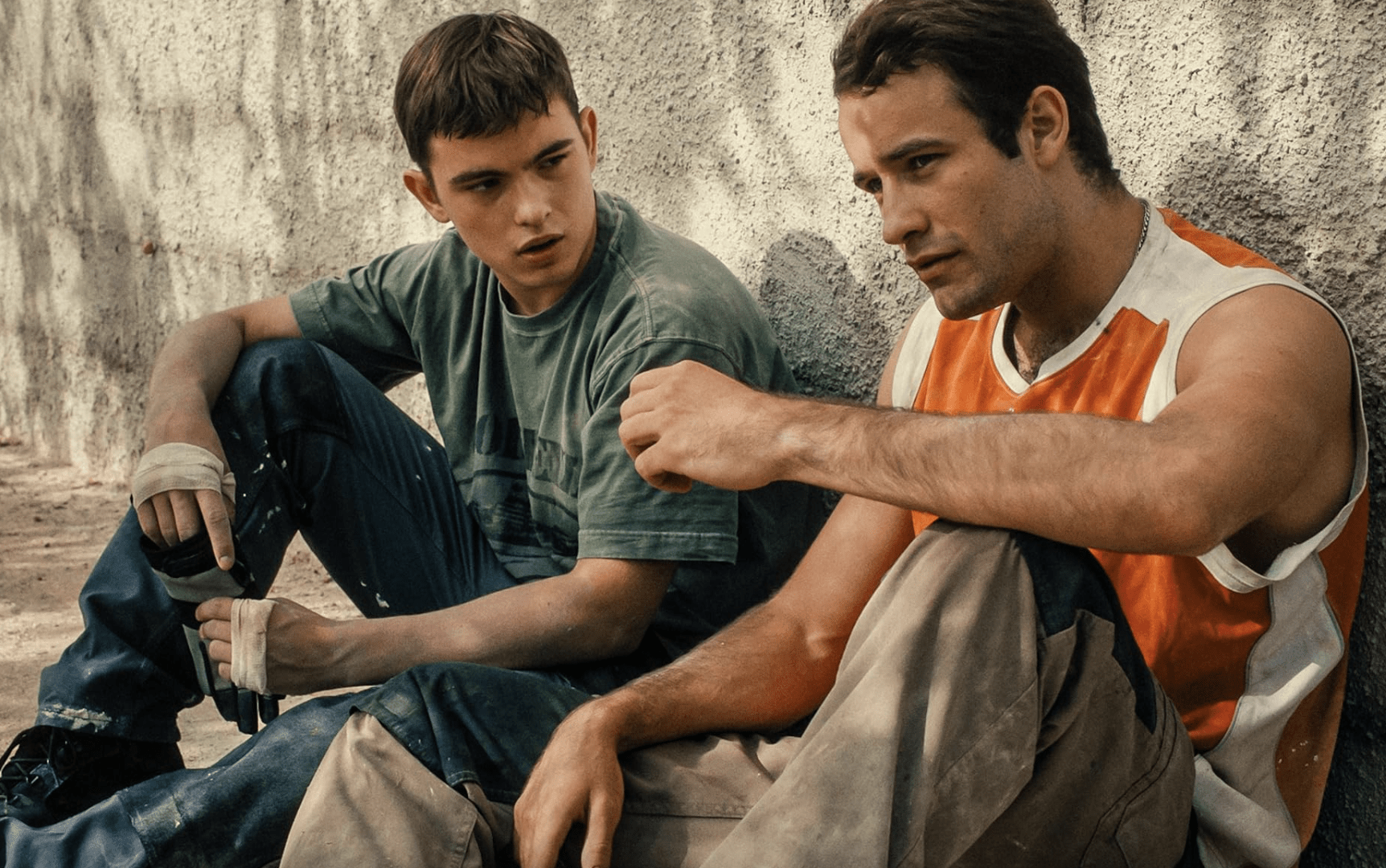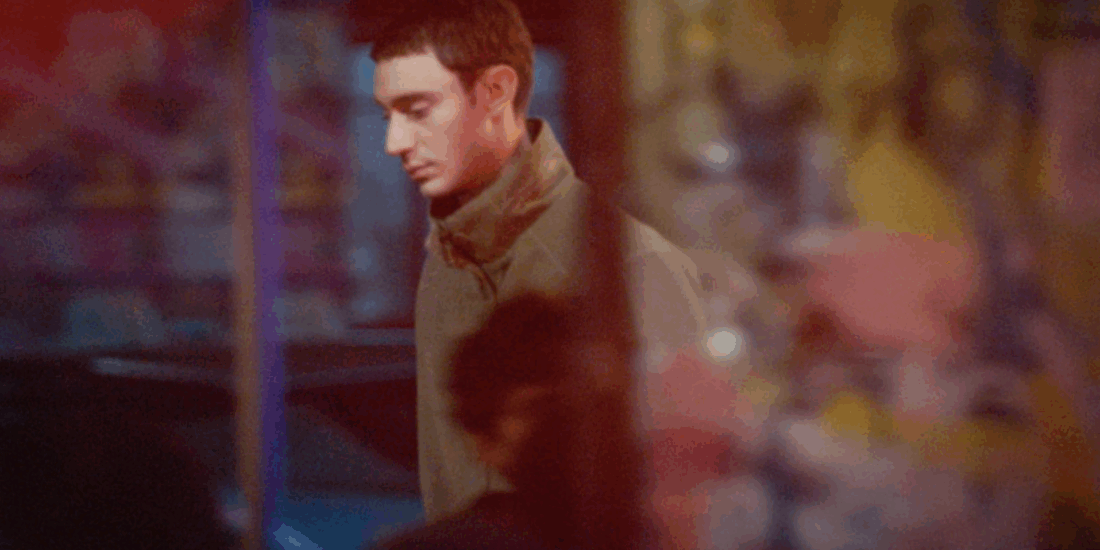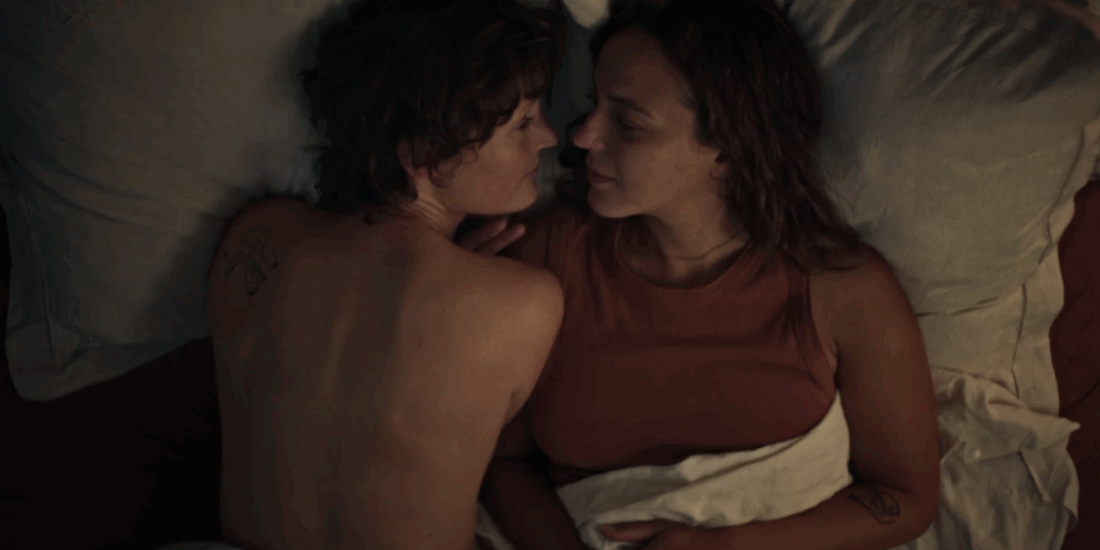Robin Campillo:
ENZO is the culmination of a long friendship. For several years, I was in a rather unique position in relation to Laurent Cantet, having edited six of his films and co-written five of them. When Laurent found out he had cancer, we decided to return to this partnership so that I could assist him in all the phases of making the film. His health suddenly took a turn for the worse a few weeks before shooting, and that’s when Laurent and his partner Isabelle, along with Marie-Ange Luciani, the producer, decided to go ahead with the project. I told Laurent right away that I was going to respect all the things we’d said to each other, but that I was incapable of making a film “in the style of…”
In any case, we always ended up agreeing on the natural evolution of films in general. ENZO remains Laurent’s film, it’s his project, his vision of human conflicts. But I have to say that it was a pleasure to make his film, to produce this work between him and me. Especially as Gilles Marchand, another of Laurent’s friends and collaborators, was there throughout the shoot.
We were able to cast the four main characters together and that was crucial for the film. We both really wanted to work with Élodie Bouchez and so giving her the role of this mother (Marion) who is a lucid onlooker was immediately obvious to us. For the father (Paolo), we had already thought of Pierfrancesco Favino, but we were a little hesitant because of the language. Little by little, he became the obvious choice because, beyond the power of his acting, we found it unsettling to have a father who is a little out of place in his own family.
As he had so often done, Laurent wanted to use “non-professional” actors alongside these stars, so as to create a class relationship between the characters. Maksym Slivinskyi had worked on building sites like [his character] Vlad. From the very first screen test, we sensed in him a youthful energy, a melancholy and at times a harshness that moved us. As for Eloy Pohu [as 16-year-old Enzo], you could say that he was a revelation, but in fact he was the one who revealed the film to us. Eloy had been a high-level competitive swimmer, and there were a number of things about him that interested us: self-discipline, a sense of brotherhood with his fellow athletes, but also a taste for solitude and silence that we felt was important for the character. In this way, Eloy allowed Enzo to be more than just the portrait of a teenager in conflict with his family and society.
There is something Bartleby-like about Enzo, a strength of inertia that is basically an even more radical response to what is expected of him. Through Enzo, Laurent wanted to paint the portrait of a young apprentice who escapes the constraints of the education system and its new tools of control—the notorious French university access program followed by his brother Victor (Nathan Japy)—and tries to come to terms with the brutality of the world. In other words, the reality of working-class life, and then, through contact with Vlad and Miroslav (Vladislav Holyk), the threat of [Russia’s] war [with Ukraine]. It’s as if Enzo is trying to pre-empt the call to arms, not because he is brave, but because he is afraid of the world ahead. Faced with a family that offers him a peaceful, sunny life by the pool, he is an adolescent who resolutely sides with the moon, the night, and the waves that crash against the cliffs. He invents a form of romanticism that could tear him away from this family that he does not recognize.
For Enzo, this romanticism is embodied in the character of Vlad, who is like his mentor on the construction site and who gradually becomes the object of his desire. Laurent and I didn’t agree about the nature of Enzo’s desire. For Laurent, the teenager had a fluid sexuality that allowed him to explore all experiences, whereas for me, through this fantasy of a foreign worker, Enzo was discovering a new side to his libido. The truth is that neither Laurent nor I knew anything about it. And the film, like life itself, never attempts to pass judgement on the subject. The film is never about coming out. Enzo knows all too well that Vlad cannot return his feelings (he is underage and Vlad is straight). But the desire that draws Enzo to Vlad is a hope greater than a simple matter of love or sex. What Enzo is looking for is a comrade-in-arms when faced with the uncertainty of the present day, which is why this desire is not without a certain virility.
The family is perhaps the most random construct in society. Enzo certainly feels like an outcast in his own family. Laurent was keen not to portray him as a troubled teenager struggling to reach adulthood, but rather as a character who is completely disconnected from his family. Of course, his father is right to tell him that deep down he is “just a spoiled kid fooling himself,” but what distresses Paolo is that he recognizes in his son a dark side that no doubt he shares. He therefore sees his son as a kind of permanent reproach that threatens the family’s social comfort. Enzo remains a mystery to him: why does he refuse to conform to the carefree lifestyle of the bourgeoisie? Why isn’t he content to blend into a family project that is so reassuring: enjoying the summer, the sea, the sun, a boat trip, ruins in the middle of the day? Enjoying life before it’s too late?
On the closing evening of The American French Film Festival, join Élodie Bouchez for the American premiere of ENZO, “a film by Laurent Cantet, directed by Robin Campillo.”
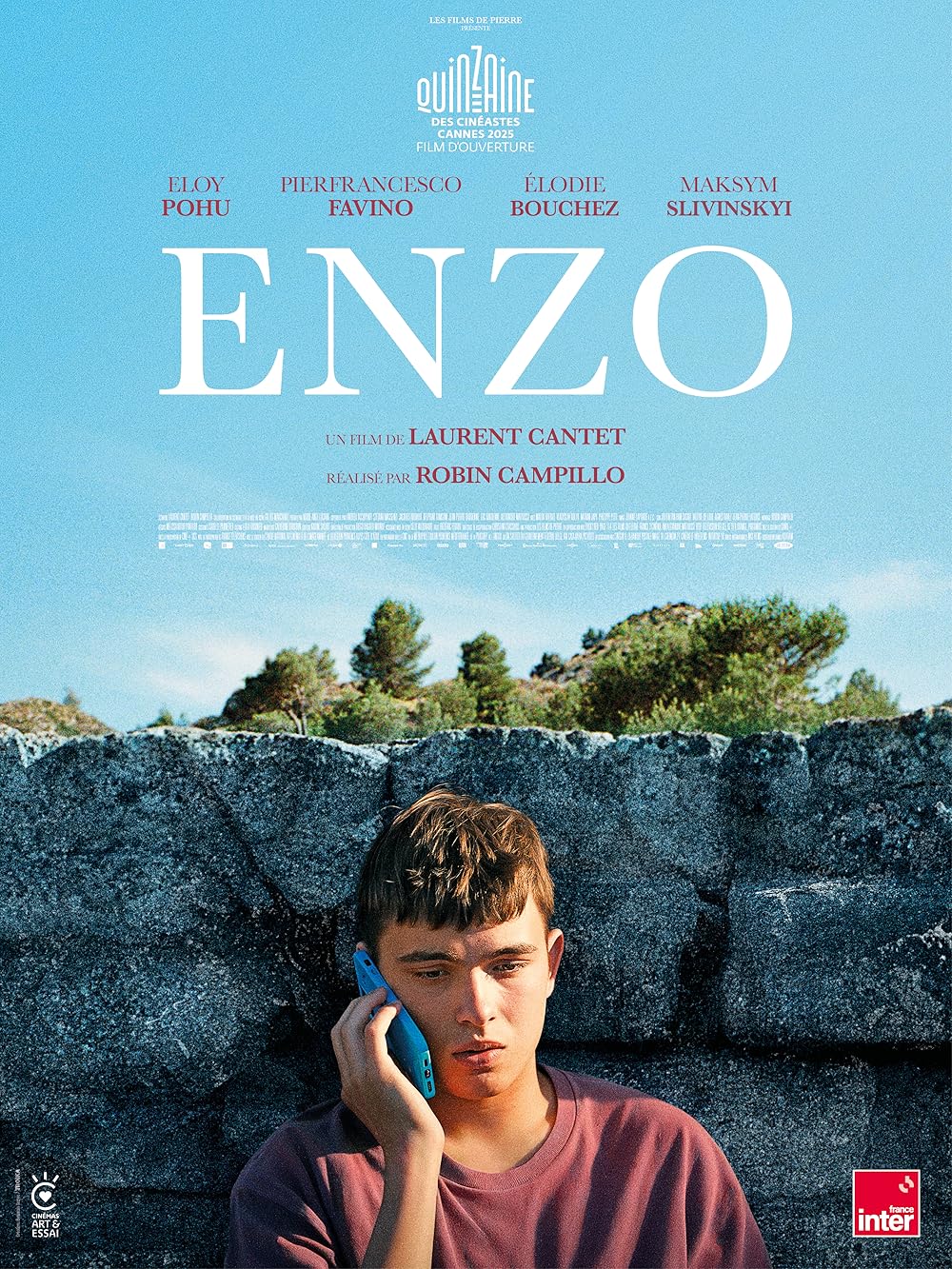
ENZO
A film by Laurent Cantet, directed by Robin Campillo
The American French Film Festival 2025
Monday, November 3, at 8:30 pm
Q & A with Élodie Bouchez
Directors Guild of America
7920 Sunset Boulevard, Los Angeles
theamericanfrenchfilmfestival.org/enzo
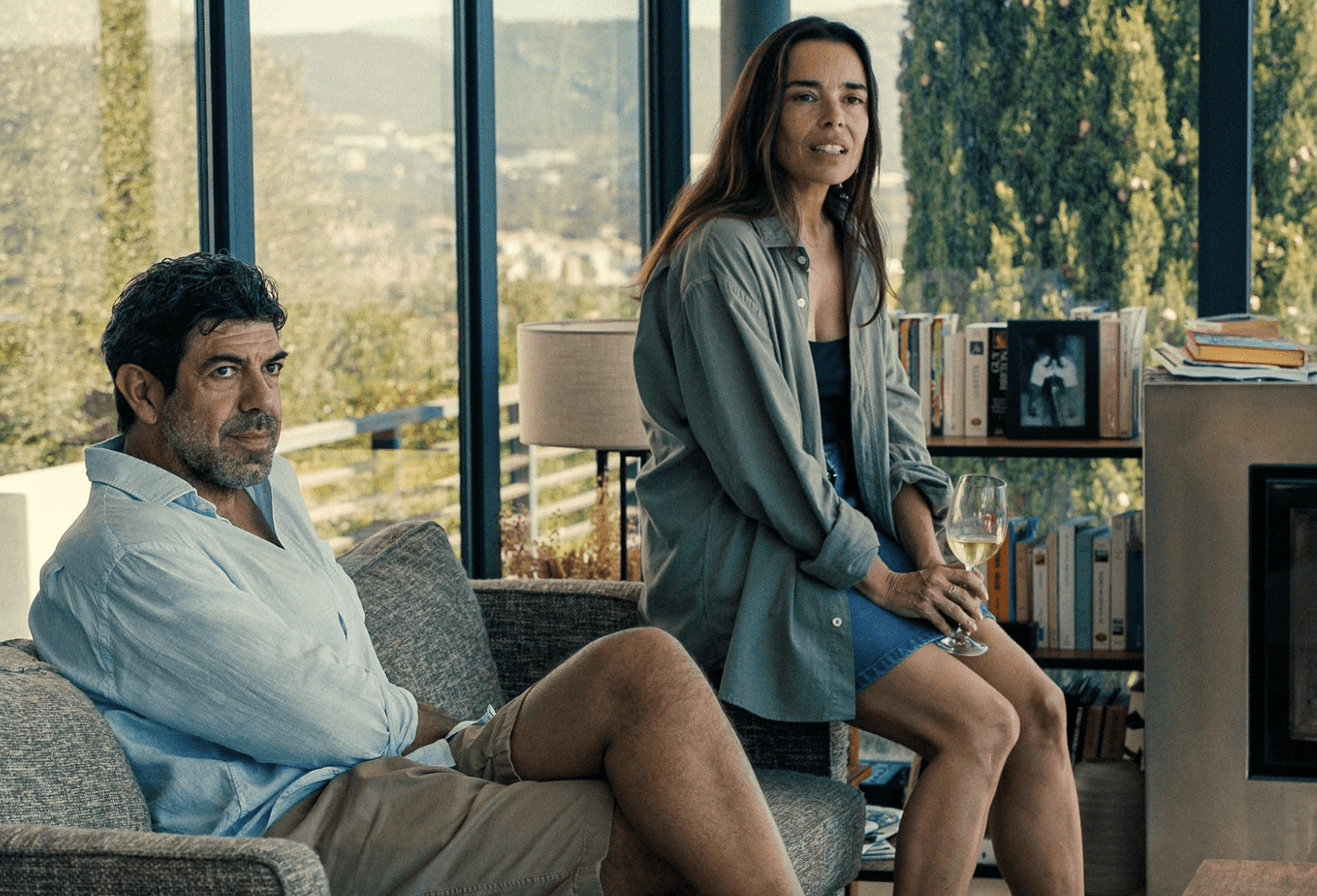
Laurent Cantet and Robin Campillo, Enzo (2025), from top: Eloy Pohu (left) and Maksym Slivinskyi; Enzo, French poster, featuring Pohu; Pierfrancesco Favino and Élodie Bouchez.
Film stills, poster, and Robin Campillo interview courtesy and © mk2 Films.

